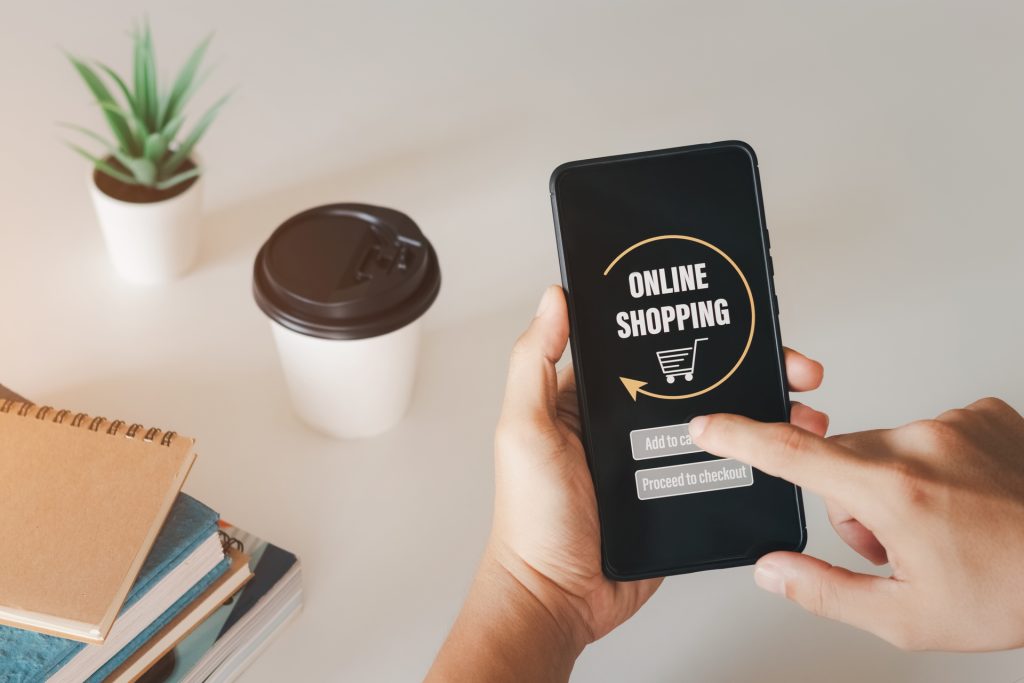Introduction to Influencer Marketing and E-commerce in Saudi Arabia
E-commerce in Saudi Arabia is booming. With one of the highest internet penetration rates in the world and a young, tech-savvy population, the Kingdom has quickly become a hub for online shopping. As more businesses move online, they are increasingly turning to influencer marketing for e-commerce in Saudi Arabia to help them stand out in a crowded marketplace.
Influencers in Saudi Arabia have the power to make or break e-commerce brands. By leveraging their large followings and trusted voices, influencers can drive traffic, increase sales, and boost brand awareness in ways traditional advertising simply cannot match. But how exactly is influencer marketing transforming the e-commerce landscape in Saudi Arabia?
The Rise of E-commerce in Saudi Arabia
In the past few years, e-commerce in Saudi Arabia has grown exponentially. With platforms like Noon, Souq (Amazon), and Jarir gaining massive popularity, online shopping has become the norm. Shoppers are increasingly looking for convenience, a wide range of products, and trusted reviews before making purchases.
One key element that is driving this growth is social media. Platforms like Instagram, Snapchat, and TikTok are where Saudi consumers discover new brands, explore product recommendations, and make purchasing decisions. This is where influencer marketing comes into play.
How Influencer Marketing Fits into E-commerce Growth
1. Influencers as Trusted Product Reviewers
One of the biggest challenges for e-commerce brands is gaining consumer trust. Since online shoppers can’t physically see or touch products before buying, they rely heavily on reviews and recommendations. Influencers serve as trusted reviewers who bridge this gap.
By collaborating with influencers, e-commerce brands in Saudi Arabia can tap into their followers’ trust. When an influencer genuinely endorses a product, their audience is more likely to believe in the quality of the product and make a purchase.
- Example: A beauty influencer in Jeddah promoting skincare products with a detailed review is likely to drive significant traffic and sales for the brand, as her followers trust her opinion on beauty products.
2. Leveraging Social Media for Instant Purchases
Social media platforms have made it easier than ever for consumers to shop directly through influencer posts. Features like Instagram’s “Shop Now” button and TikTok’s direct links to products enable followers to make immediate purchases without leaving the app.
This seamless integration between social media and e-commerce allows brands to capitalize on impulse purchases. Influencers can drive their followers straight to product pages with just one swipe or click, shortening the path from discovery to conversion.
- Example: An influencer in Riyadh sharing a “swipe up” link on their Instagram Story for a fashion brand’s new collection can lead to instant sales.
3. Creating Authentic Brand Connections
Traditional advertising can sometimes feel impersonal, especially when it comes to online shopping. Influencers, on the other hand, provide a personal touch. They create authentic content, share their personal experiences with products, and engage directly with their audience.
For e-commerce brands, this personal connection is invaluable. Influencer marketing humanizes the brand, making it more relatable and trustworthy to potential customers.
- Example: A fitness influencer in Dammam collaborating with a sportswear brand and sharing her workout routines while wearing the brand’s products makes the brand feel more authentic and connected to its target audience.
How Influencers Boost E-commerce Sales
1. Driving Traffic to Online Stores
Influencers have the ability to drive a massive amount of traffic to e-commerce websites. By featuring a product in their post or story, influencers can redirect their audience to the brand’s online store. This direct traffic is incredibly valuable, as these visitors are highly engaged and likely to make a purchase.
- Example: A food blogger in Saudi Arabia featuring a cooking gadget in her Instagram post, with a link to the product page, can generate a significant spike in traffic to the e-commerce store.
2. Creating Limited-Time Offers and Giveaways
Another powerful way influencers boost e-commerce sales is by running limited-time offers or giveaways. These campaigns create a sense of urgency, encouraging followers to take action immediately.
Collaborating with influencers to offer exclusive discounts or run a giveaway creates buzz around the brand and increases the likelihood of purchases. This strategy also helps brands increase their social media followers and engagement.
- Example: An influencer in Jeddah promoting a 24-hour discount code for an e-commerce store drives immediate traffic and sales, as followers rush to take advantage of the deal.
3. Building Long-Term Customer Relationships
Influencers are not just a one-time marketing tool. By working with the same influencers over a longer period, e-commerce brands can build lasting relationships with their target audience. Followers become familiar with the brand and develop loyalty over time, leading to repeat purchases and customer retention.
- Example: A fashion influencer partnering with an online clothing store over multiple seasons keeps the brand top-of-mind for her followers, encouraging them to return for new collections.
Local Influencer Marketing Strategies for Saudi E-commerce
When it comes to influencer marketing in Saudi Arabia, it’s important to consider local trends, preferences, and cultural factors. Here are a few strategies to keep in mind:
- Collaborate with Local Influencers: Saudi consumers are more likely to trust influencers who are part of their community. Working with Riyadh-based influencers or Jeddah influencers can help you tap into local markets more effectively.
- Use Arabic Content: While many influencers create content in English, it’s essential to connect with Saudi audiences in their native language. Ensure that influencer collaborations feature Arabic content where possible.
- Focus on Key Platforms: Platforms like Instagram and Snapchat are hugely popular in Saudi Arabia, so prioritize influencers who are active on these platforms.
Measuring the Impact of Influencer Marketing on E-commerce
Influencer marketing offers powerful results, but it’s essential to track your campaign’s success. Here are some key metrics to measure:
- Traffic and Conversion Rates: How many people visited your e-commerce site from the influencer’s post, and how many made a purchase?
- Engagement: Measure likes, comments, and shares on the influencer’s post to gauge the audience’s reaction to the campaign.
- Sales: Track how many sales were directly generated through discount codes, affiliate links, or direct links provided by the influencer.
- Customer Lifetime Value: Analyze how many new customers from influencer campaigns become repeat buyers.
Conclusion: The Future of Influencer Marketing for E-commerce in Saudi Arabia
As e-commerce continues to thrive in Saudi Arabia, influencer marketing will only become more critical for brands looking to connect with consumers. Whether you’re targeting local markets in Riyadh or expanding your reach across Dammam and Jeddah, partnering with the right influencers can boost your brand’s visibility, trust, and sales.
Influencers offer a unique way to bridge the gap between brands and consumers by providing authenticity, trust, and personalized recommendations. In 2024, e-commerce brands in Saudi Arabia that leverage influencer marketing will be best positioned to succeed in this rapidly growing market.
Are you ready to supercharge your e-commerce brand with influencer marketing? Contact us at Deep Reach Business Solutions to start building powerful influencer partnerships that drive sales and customer engagement.


